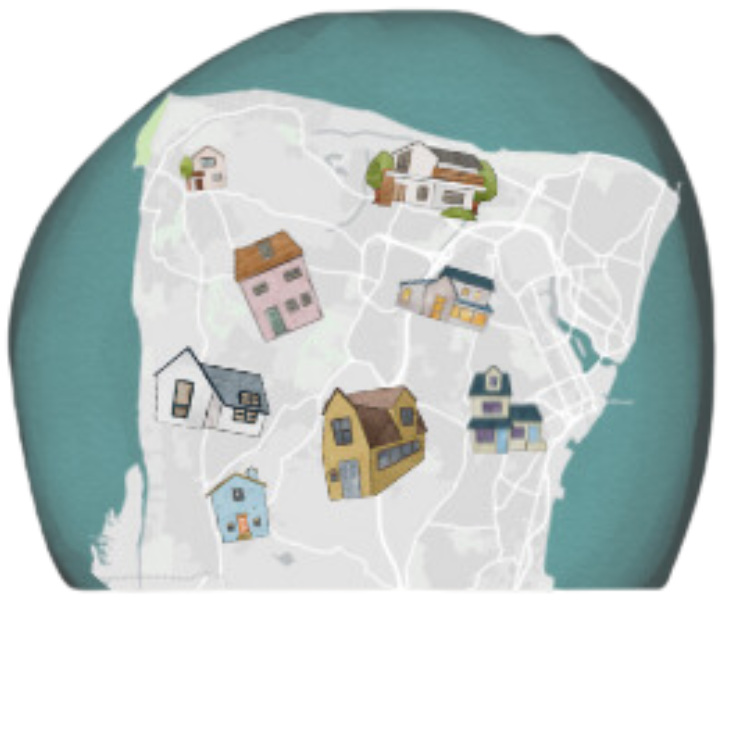
Your guide
for an easy property purchase
Step-by-Step Guide
Assess your financial situation and determine how much you can afford to spend on a
house. Consider factors such as your income, existing debts, savings, and potential
future expenses.
Get pre-approved for a mortgage to understand how much you can borrow from
lenders. This will help you narrow down your search and negotiate with sellers
confidently.
It is important to stay within your budget as any missed mortgage payments can
result in your home being repossessed.
Make a list of your must-have features and preferences in a home, such as location,
size, layout, number of bedrooms and bathrooms, yard space, and amenities.
Prioritize your requirements to focus on what matters most to you. Be flexible, but
also realistic about your expectations.
Explore different neighbourhoods and communities to find the right fit for your
lifestyle and needs. Consider factors like proximity to schools, workplaces, amenities,
safety, and future development plans.
Research recent sales and market trends to understand property values and
determine if it's a buyer's or seller's market. This knowledge will help you make
competitive offers and negotiate effectively.
We are experienced estate agent and we understand your needs and have extensive
expertise in the local market.
As your agent we will guide you through the entire buying process, from searching for
properties to negotiating offers and closing the deal. We can also provide valuable
insights and advice based on our knowledge and experience.
Attend open houses and schedule private viewings of properties that meet your
criteria. Take note of both the positives and negatives of each home.
Don't hesitate to ask questions about the property, such as its condition, age of major
systems (roof, HVAC, plumbing, etc.), any recent renovations or repairs, property
taxes, and homeowners association fees
Once you've found a property you're interested in, conduct thorough due diligence.
This may include a surveyor to assess the condition of the property and identify any
potential issues.
Review important documents such as the seller's disclosure statement and title
report documents to ensure there are no surprises or red flags.
Work with us to craft a competitive yet reasonable offer based on market conditions,
comparable sales, and the property's condition.
Consider including contingencies in your offer to protect yourself, such as a financing
contingency, home inspection contingency, or appraisal contingency.
Be prepared to negotiate with the seller if they counter your offer. As your estate
agent we will help you navigate the negotiation process to reach a mutually beneficial
agreement.
Once your offer is accepted, work with your ourselves, your lender, and solicitor to
complete the necessary paperwork and finalise the purchase.
Attend the closing meeting to sign the final paperwork and transfer ownership of the
property. Make sure to review all documents carefully and ask questions if anything
is unclear.
After closing, celebrate your new home! Plan your move carefully and enlist the help
of friends, family, or professional movers to make the transition as smooth as
possible.
Once you've moved into your new home, prioritize regular maintenance and upkeep
to protect your investment and ensure its long-term value.
Stay informed about local market trends and consider making improvements or
renovations that enhance the comfort, functionality, and value of your home.
Remember, buying a house is a significant financial and emotional investment, so take your time, do your research, and seek guidance from professionals every step of the way. With careful planning and informed decision-making, you'll soon be enjoying the comforts of your dream home.


